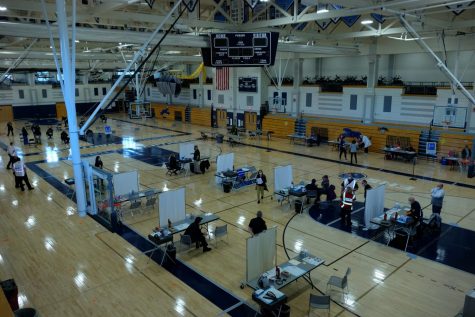Environmental Investigations: The Failures of Factory Farming
January 16, 2020
Do you know where your meat comes from?
Many people are unaware that the food they consume is prepared through the horrific process of factory farming.
Factory Farming is a profit based style of farming that violates the welfare of animals.
Animals are kept in cramped, uncomfortable conditions that do not promote health or happiness.
As well as the abuse of animals, factory farming creates another global issue: waste.
According to Food and Water Watch, excessive animal waste from factory farms is disposed of in local waterways, polluting the air and water.
Some examples of places where factory farming has led to pollution are the Gulf of Mexico, the Great Lakes, and the Chesapeake Bay- all major water ecosystems in America.
Furthermore, large amounts of greenhouse gases are produced due to factory farming, both from the animals themselves and from the gases it takes to create feed for the animals. (World Economic Forum).
Yet another humanitarian issue that arises from factory farming is health of workers in these factories.
Respiratory illnesses like bronchitis can come from working in these factories, and there are other dangers such as amputations are not regulated in the animal production industry.
So what can a person do to help solve the issue of factory farming?
It is important to pay attention to where you buy meat from.
Pasture raised, humanely bred meat is produced in a way that is better for the environment and kinder to the livestock.
Image Source: https://www.dw.com/en/factory-farming-reforms-proposed-in-germany/a-19503127













